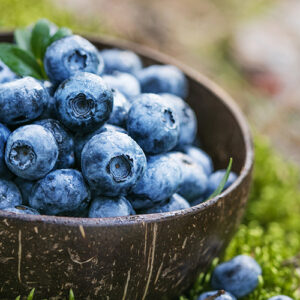Table of Contents
There is no doubt, prebiotics and probiotics are a regular focus of health and nutrition magazines and are a constant in the nutritional advice of medical professionals.
Why? The evidence shows a direct relationship between the state of the digestive flora, or microbiota, and the immune and neurological systems. In this gut-brain relationship insoluble dietary fibres and certain gut bacteria have a big part to play.
Prebiotics’ main contribution to digestive health and general well-being is in maintaining balance. The absence of intestinal homeostasis is known as intestinal dysbiosis and is a marker in a wide variety of disorders such as reflux, diarrhoea, constipation, gastritis, and also in other conditions such as dermatitis and cognitive impairment.
What we eat not only affects our physical condition, but also our mood and mental health.
A study carried out by researchers from the University of California-Los Angeles (UCLA) revealed that a diet rich in probiotic and prebiotic foods for a group of individuals during one month optimized brain function, which could be verified by magnetic resonance imaging.
What is a probiotic? And a prebiotic? What are the differences between prebiotics and probiotics?
Probiotics
According to the WHO (World Health Organization), a probiotic food is one that contains living organisms, microbes and healthy bacteria that, when properly introduced in our daily diet, will produce a beneficial effect by expanding our microbiota (a community of beneficial, symbiotic and commensal bacteria).
Prebiotics
Prebiotics, by contrast, are carbohydrates (specifically insoluble dietary fibers), which promote the growth of the bacterial community that makes up our intestinal microbiota. You could say that prebiotics feed probiotics.
What is their function?
Both aim to balance the ecosystem of the intestinal microbiota:
- Prebiotics feed the bacteria that already inhabit the intestine, stimulating their development selectively and, therefore, intervening in the bacterial ecosystem.
- Probiotics add new strains of beneficial bacteria.
The use of food to modify the microbiota has a long record in our history. Fermented milk was one of the first foods used to treat gastrointestinal problems in 76 BC. C
Prebiotic foods
Prebiotics, due to their chemical structure, are not absorbed in the small intestine. This means they reach the large intestine intact ready to fulfil their mission: to feed your intestinal bacterial community.
This type of fibre is found in foods such as mushrooms, honey, onions, asparagus, rye, artichokes, and chicory, as well as in products made from these foods such as concentrated insoluble fibre extracts.
Probiotic foods
Prebiotics also support the immune system
The immune tissues of the gastroenteric tract make up the largest and most complex fraction of the human immune system. The intestinal mucosa is a surface that lines the intestine and it is exposed to pathogenic (disease-causing) and non-pathogenic (which stimulate the immune system to produce antibodies) environmental antigens.
The fermentation of prebiotics by the intestinal microbiota creates favorable environmental conditions for the growth of hostile substances for the development of pathogens.
Consequently, there is a decrease in the enemy flora and its toxic metabolites (ammonia, biogenic amines, nitrosamines, etc.) which, in high concentrations, favour the mucosa inflammation and alter its permeability, negatively impacting on the organism health.
Prebiotics promote the health of the microbiota, a set of symbiotic microorganisms present in the intestine, essential for healthy digestion and proper functionality of the immune system.
Oligosaccharides and polysaccharides: the most studied prebiotics
Lion’s Mane (Hericium erinaceus) is an edible white fleshed fungus that stands out for its high protein content and important minerals that are often scarce in the everyday diet, such as selenium, germanium and zinc. In addition, it is considered a medicinal species for its content in beta-glucans, hericenones, erinacines, ergothioneine and lovastatin, amongst others.
Its composition also includes chitin and insoluble fibers that, as we have seen previously, help to balance the intestinal microbiota.
Erinacines and hericenones are relevant in the gut-brain connection since studies have found that they are precursors of nerve growth factor (NGF) that stimulates the regeneration of nervous and digestive tissues.
As a summary…
Prebiotic Diet
In order to keep a healthy microbiota, it is useful to include prebiotics, substances capable of selectively stimulating the growth and / or activity of one or a limited number of beneficial bacteria present in the colon.
A decrease in the enemy flora and its toxic metabolites (ammonia, biogenic amines, nitrosamines, etc.) is obtained, which in large concentrations favour the inflammation of the mucosa and alter permeability.
A large number of viruses, which enter our body through food, are implanted a priori in the intestine, therefore, an imbalance of the bacterial flora with the consequent drop of defenses of the immune system, facilitates the appearance of diseases. Increasingly, scientific studies show the importance of the digestive system to enjoy a good health.
We recommend

Antioxidant rich must have foods
Oxidation is a natural biological process that occurs in all cells of the human body and is related to ageing. Oxidation can be influenced by a variety of factors, including genetics, lifestyle, exposure to environmental toxins and diet.
In this regard, nature provides us with an abundance of antioxidant sources. Incorporating a variety of these antioxidant foods into your daily diet is a smart and delicious way to give your body the support it needs to function in an optimal and balanced way.

If you are allergic to pollen, this is of great interest to you
If you have a pollen allergy or suspect you might have one, this article is essential. We give you the keys to finding out if you have any doubts about the diagnosis and how to treat the symptoms. We also provide general recommendations and the latest information on the concept of natural antihistamines.


